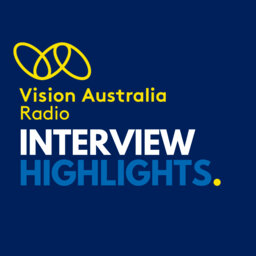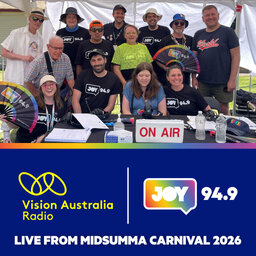Interview Highlight: Cassandra Chui and Andrew Chew from K9
Vision Australia and Seeing Eye Dogs welcomed guests from the Singaporean assistance dog organisation, K9. Director Cassandra Chui and board member Andrew Chew were on a learning tour of a number of Australian blindness and assistance dog organisations . In this interview they discuss the importance of assistance dogs for disabilities outside of blindness and low vision including autism and deaf and hard of hearing.
In 1 playlist(s)
Interview Highlights from Vision Australia Radio
Vision Australia Radio Interview Highlights shares a range of discussions initially broadcasted on o…Social links
Follow podcast
Recent clips

Interview Highlight: Kip McLachlin - Piano Punk
08:30

Interview Highlight: Megan Star - Redfeet Wines
08:32

Midsumma Festival 2026, Carnival Day - Interview with Justin Clausen ‘He’s Every Woman’.
07:26
 Interview Highlights from Vision Australia Radio
Interview Highlights from Vision Australia Radio